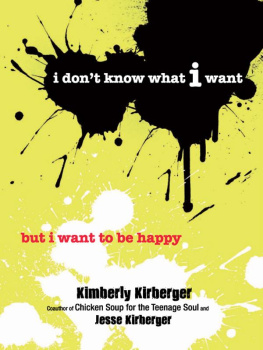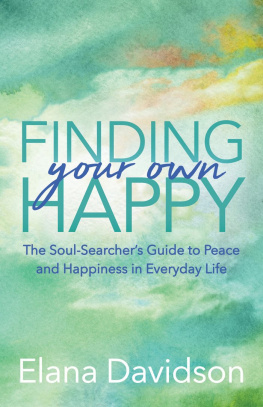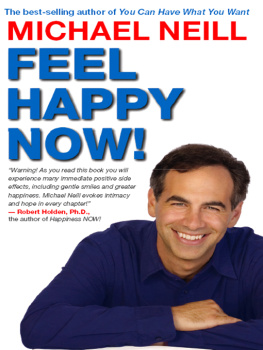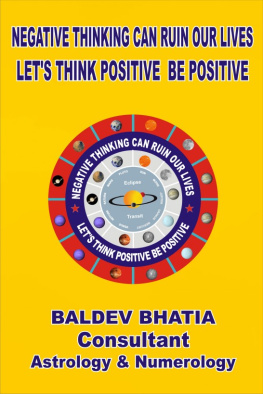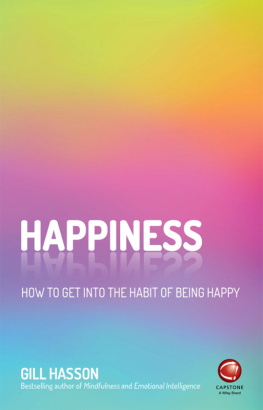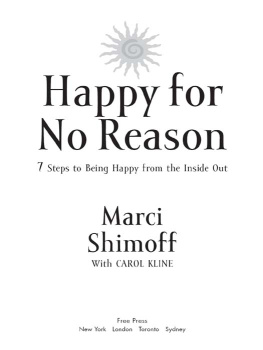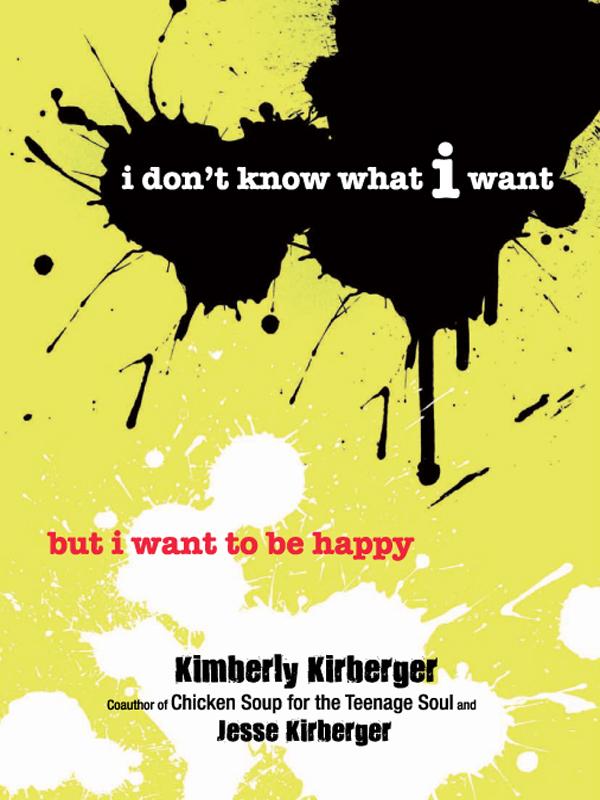
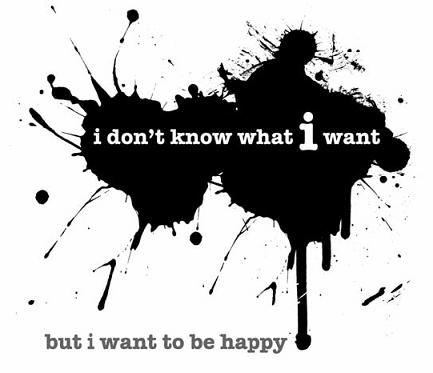
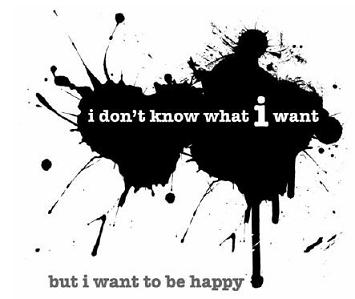
Kimberly Kirberger
Co-author of Chicken Soup for the Teenage Soul and
Jesse Kirberger

www.hcibooks.com
Permissions
Standing Alone by Kimberly Kirberger and Hanna Szabo. Printed with permission.
I Love What I Do by Alexander Witt. Printed with permission.
A Fun Chase by Hana Szabo. Printed with permission.
A Creative Outlet by Lancelot Dyke. Printed with permission.
All I Want Is a Smile by Lia Gay. Printed with permission.
My Daily Pursuit of Happiness by Chrissy Blumenthal. Printed with permission.
Remember to Remember by Lia Gay. Printed with permission.
Get Organized by Hana Szabo. Printed with permission.
Every Day Something New by Cody Demory. Printed with permission.
Ive Been Given by Kristen Foster. Printed with permission.
Picking Up the Pieces by Emily Starr. Printed with permission.
The Journey by Zan Gaudisio. Printed with permission.
Library of Congress Cataloging-in-Publication Data
Kirberger, Kimberly.
I dont know what I want / Kimberly and Jesse Kirberger.
p. cm.
eISBN-13: 978-0-7573-9821-6 (ebook) eISBN-10: 0-7573-9821-9 (ebook)
1. Happiness. 2. Conduct of life. I. Kirberger, Jesse. II. Title.
B187.H3K56 2009
158dc22
2009012229
2009 Kimberly and Jesse Kirberger
All rights reserved. Printed in the United States of America. No part of this publication may be reproduced, stored in a retrieval system, or transmitted in any form or by any means, electronic, mechanical, photocopying, recording, or otherwise, without the written permission of the publisher.
HCI, its logos, and marks are trademarks of Health Communications, Inc.
Publisher: Health Communications, Inc.
3201 S.W. 15th Street
Deerfield Beach, FL 334428190
Cover design by Larissa Hise Henoch
Interior design and formatting by Lawna Patterson Oldfield
The first time our needs and our wants are fulfilled is seconds after we are born into this otherwise cold and confusing world. For most of us, it is our mothers who give us our first taste of happiness. They feed our hunger, keep us warm, and show us love.
Thats why it is with the deepest gratitude that we dedicate this book to all mothers for the happiness they bestow upon our world.
Some very special mothers who have earned our deepest love and gratitude are Ellen Angelis, Jody Kirberger, Dorothy Mayfield, Helga Witt, and Linda Cross.
CONTENTS
by M. Adam Sheck, Psy.D
by Jesse
by Jesse
by Kimberly Kirberger and Hanna Szabo
by Alexander Witt
by Kimberly Kirberger
by Jesse
by Jesse
by Jesse
by Hana Szabo
by Lancelot Dyke
by Jesse
by Jesse
by Lia Gay
by Chrissy Blumenthal
by Lia Gay
by Hana Szabo
by Cody Demory
by Kristen Foster
by Jesse
by Jesse
by Jesse
by Emily Starr
by Zan Gaudisio
by Jesse
I have known Kimberly for a number of years and find her commitment to helping teenagers incredibly powerful. In I this latest book, coauthored with her son, Jesse, she continues with this intention.
She takes some of the very sophisticated concepts from existentialism, cognitive psychotherapy, and metaphysics, and expresses them magically and creatively in a way that the teenage mind (as well as most adult minds) can understand, accept, and use to become happy. And since happy is our underlying motivation and number one desire, I think she has chosen the best possible subject to deliver to teens in the way that only she can do.
This book is for those who are turned off by the latest psychobabble and just want someone to talk straight and not try to talk hip. Kimberly and Jesse only want their readers to understand and benefit from their offerings and it shows, with Jesses witty and wise paragraphs sprinkled throughout. Without question, this is my favorite one of her books yet.
As a clinical psychologist, my professional advice to you is this: read this book! Feel free to read it cover to cover, front to back, or back to front. Read it from the middle to the end. Or just pick a random page and read it. However you read it, Im strongly urging you to just read it. And make yourself happy!
M. Adam Sheck, Psy.D.
Jesse
MUCH OF THE ADVICE GIVEN in self-help or advice books can sometimes be shrugged off as a bunch of meaningless clichs. I dont doubt that some of you will feel that way about some of the advice in this book.
You can only take something getting drilled into your head so many times before you begin to tune it out. This is something you will have to overcome in order to fully commit to getting happy. Why do you think certain phrases become clichs in the first place? I figure its because enough people agreed that they were good advice or at least held a lot of truth. Then, whenever these people would meet someone who might benefit from knowing that all is fair in love and war or to never look a gift horse in the mouth, they would let them know, until everyone was saying it. I dont necessarily support the fine folks who discovered that there is, indeed, more than one way to skin a cat, but I wouldnt argue the truth in that statement.
So if you encounter anything that may seem like a clich along the way, be open to treating it as good advice, as if you are hearing for the first time. Dont be so quick to kick it to the curb or to write it off as just another clich.
W hen we are born and take our first breath, weseparate from our mother and from perfecthappiness for the first time. We cry because we are suddenly cast into a world where we feel things like coldness, heat, hunger, and thirst; thus, we feel UNCOMFORTABLE.
Someoneusually our motherfeeds us, holds us, loves us, and releases us from our discomfort. It is one of our earliest experiences of happiness in this new and frightening world.
When our needs have been met, we relax and are able to rest peacefully....
Until...
We find ourselves uncomfortable again. This time, we want more than food. We want to be dry, we want a comfortable bed, and we want someone to hold us and sing us to sleep. As time goes by, the list grows longer. As we expand our experience of the world around us, we also expand our list of wants and needs. At some point, we lose touch with what it is we want and what it is that we need. These feelings of discomfort and emptiness become so commonplace that they dont stand out anymore. Most of us begin to accept the yearning and emptiness as just a normal part of being human.
Since we cant find that perfect peace we once felt on the inside, we begin seeking distraction from our yearning on the outside: something, anything, that will hold our attention well enough to keep us from feeling the emptiness. We become so good at distracting ourselves from the pain that we eventually forget thats what were doing. Before long, we start to feel the pain we have so cleverly hidden from ourselves, and we believe someone else must be causing it. It cant be our pain because we were fine until so and so came along and said this and that. We become quite skilled at placing the blame for our different kinds of pain on other people. We become so skilled that we forget the pain started inside of us.
Next page
